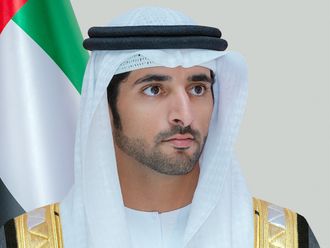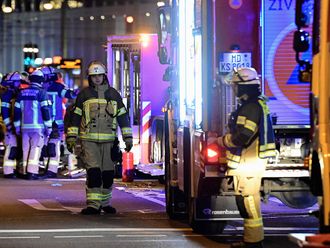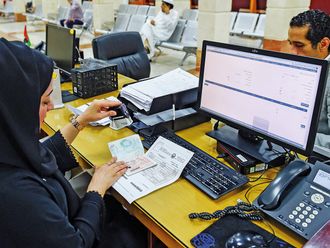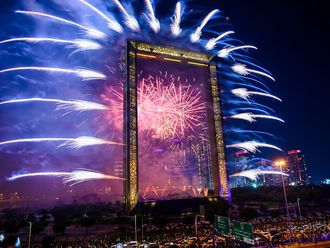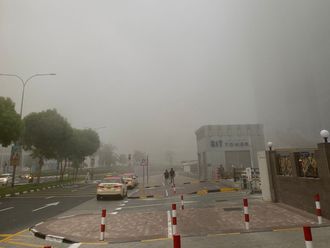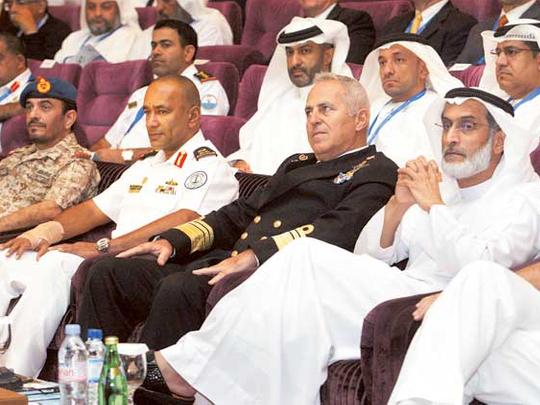
Abu Dhabi: Security and defence experts meeting in Abu Dhabi on Tuesday advised the US to respond to the “legitimate and deep concerns” of the GCC member countries over Washington-Tehran rapprochement,
“The GCC states have legitimate and deep concerns over the US-Iran rapprochement and not just haunted by the American policy vis-à-vis Iran,” Riad Kahwaji, CEO of the Institute for Near East and Gulf Military Analysis, told Gulf News.
Kahwaji said the GCC’s concern is that the US reaches a resolution to the dispute over Iranian nuclear ambitions which favours only the American interests, and provides for halting its most sensitive nuclear activity, uranium enrichment to a level close to that needed for bombs and suspending certain nuclear plants but not removing them for good. This will give Iran the option of resuming uranium enrichment to the level needed for nuclear bombs in the future.
“This means Iran will maintain its nuclear capacity in a way that can undermine interests of the countries in the region in the long run. Moreover, the US turns a blind eye to the expansion of Iran’s hegemony in Iraq, Syria and Lebanon, in return for this small Iranian move,” Kahwaji said.
Similarly, he added, the American administration gave up the military option against Syria in return for the destruction of its chemical weapons programme.
Kahwaji asked why the GCC countries are not represented in the meetings of the five permanent members of the UN Security Council besides Germany on, especially as the Iranian nuclear program poses a serious and equal threat to all the GCC member countries.
At negotiations with the US, Russia, China, France, Britain and Germany on October 15-16, Iranian negotiators expressed readiness to address Western concerns over the programme but left many details unanswered about specific concessions they may be willing to make.
Kahwaji was speaking on the sidelines of the Gulf Naval Commanders Conference held in Abu Dhabi on Tuesday.
Rear Admiral James T. Loeblein, Deputy Commander, US Naval Forces Central Command, told the conference the US, around the world, works with regional and global partners to ensure freedom of commerce and the unimpeded flow of resources into the global marketplace.
“The 5th Fleet is committed to this region and working with our GCC partners to help ensure we keepall our sea lines of communication open — providing security and economic prosperity to this region.”
Rear Admiral Loeblein spelled out the current and expected future threats to commerce and resources including piracy, illicit trafficking, unattributed attacks against maritime energy infrastructure, potential use of mines in the Arabian Gulf and small boat attacks against civilian tankers (just like we saw in the case of the Japanese tanker M Star near the Strait of Hormuz).
However, Dr Theodore Karasik, director of Research and Consultancy at the Institute for Near East and Gulf Military Analysis, said he disagrees.
“Yes, the 5th Fleet is committed to protecting and working with partners in the Gulf to maintain maritime security. However, the challenges are great because of the shifting geopolitical situation specifically the US-Iranian rapprochement,”
Dr. Karasik added the GCC countries fear that any agreement between Washington and Tehran will leave GCC’s security concerns unanswered.
“Therefore, it is important for America to continue to recognise Gulf Arab needs and capacity for robust maritime, trade and security. GCC’s demands that the outcome of any new policy adopted by American Administration in relation to the dispute over Iran’s nuclear programme should not undermine the GCC states’ security, stability and national interest,” Dr Karasik added.
The GCC’s concern about the true nature and development of the Iranian nuclear programme has deepened with the surfacing of new information and statements. Different sources have indicated that Iran is moving fast and unhindered towards the objective of acquiring military nuclear capability.
The Iranian threats to close the Strait of Hormuz and the GCC’s genuine apprehensions about the US ability and willingness to address the issue relating to Iran without undermining GCC interests have apparently prompted Saudi Arabia and the UAE to consider the acquisition of submarines.
Rear Admiral Ibrahim Al Musharrakh, Commander of the UAE Naval Forces, told the conference, the UAE was considering the possession of submarines to counter threats in the Arabian Gulf.
Saudi Arabia was also reported on Sunday as seeking to buy five German submarines for around €2.5 billion (Dh12.403 billion) and more than two dozen more in the future.
Citing unidentified government sources, the German Bild newspaper said Riyadh had its eye initially on buying the five Type 209 submarines, followed long-term by up to 25 submarines in a €12 billion deal.




